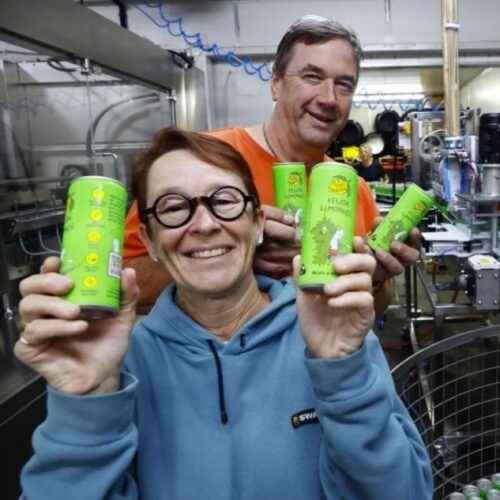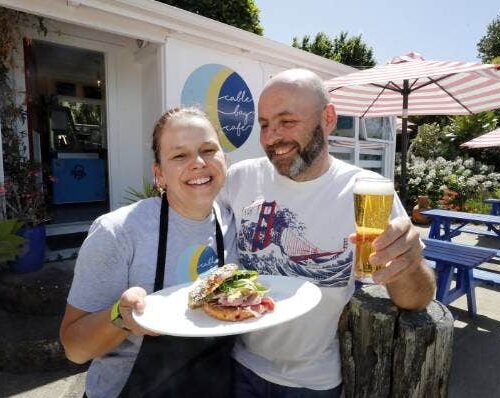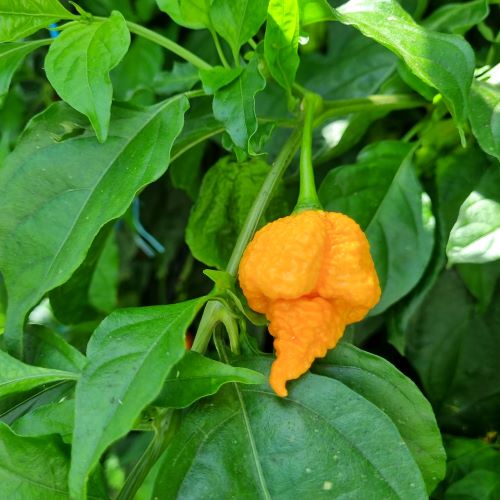
Rata Farm will spice up your life
Do you like a little spice in your life? If you do, then Rata Farms has something to really light up your tastebuds.
Located on Lansdowne Road Troy Dando and his team not only grow juicy strawberries but they also lovingly tend to a huge range of chilli plants. In their commercial glasshouse they produce dozens of varieties of chillis, from the mild and tasty to the searingly hot Carolina Reaper Chilli and some even hotter still.
I love a bit of gentle heat in my food but my days of eating a bowl of pickled chillis are behind me. These days I much prefer using chillis to add flavour and gentle heat with the occasional very hot curry or hot Thai dish.
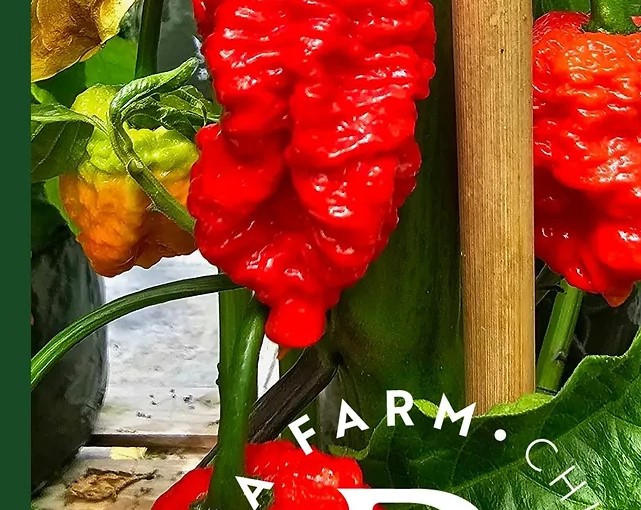
I recently ventured out to Rata Farms to check out the chilli growing operation for myself, and to find out just who is stupid enough to eat the searingly hot Chocolate Primotalii chillis that they don’t sell to most retailers because they are just too hot, even for experienced chilli eaters.
Chilli heat is measured in Scovilles and if you think Jalapenos are hot at around 8,000 units on the Scoville scale the Chocolate Primotalii chilis top out at over 2.2 million Scovilles – that is dangerously hot!
As we wandered around the glass houses Troy told me about the chillis and their processes for growing them.
Troy and his wife Jo both have fulltime jobs, his working on the tug boats at Port Nelson and Jo’s work in logistics means she has valuable skills in ensuring the fresh chillis reach their proud new owners (or silly owners, depending on your point of view) in perfect condition.
Troy says “we bought a rural property mainly for the land, but it had a couple of run down glasshouses and we didn’t have any idea what we were going to do on the property. We had travelled through Asia and love a bit of heat in our food and have always grown a few chillis at home so we decided to put them in the glasshouse, plant a few more and see what happens.”
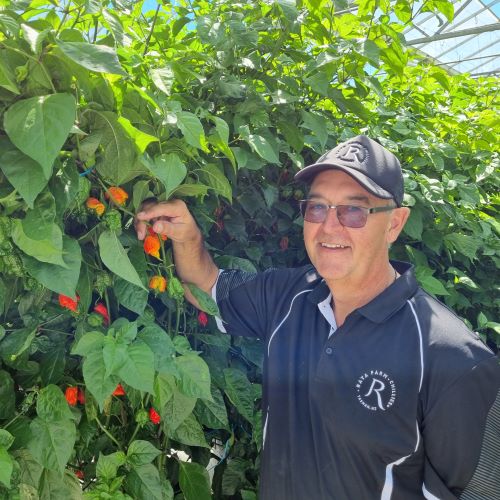
The couple were lucky in some ways. The old glasshouses had been used for hydroponic production so there was a decent water pump and some pipes in place. “We just had to clean the place up, get rid of some of the hydroponic growing troughs and alter the watering system to supply water and liquid nutrients to the chillis that we grow in bags.”
Troy told me that while they grew a few things in their home garden they had absolutely no experience growing on a commercial scale, “We had no idea what we were doing but there’s a huge amount of information on the internet and others growing chillis are only too happy to offer advice.”
Their first commercial crop was planted in the 2022-23 season with mixed results, “we moved onto the property in October and it was already well into the season so we were a bit late starting by the time we cleaned the place up.”
For the current 2023-24 season the couple gathered seeds from around New Zealand as well as retaining some seeds from the first harvest. While they have around 50 different chilli varieties growing at the moment they are currently growing isolated plants of some varieties to gather seeds from.
“We knew we had to learn as we go rather than growing thousands of plants in the first year, we needed to learn about how to grow on a commercial scale properly, what works on our property and what we need to change.” One of those learnings is the size of the grow bags they use. “Our current bags are 25 litre bags of high-nutrient soil and because we are growing them under glass the plants are very tall, and we need to tie them to stop them collapsing. Using smaller bags and moving to coconut coir grow bags we have better control over the size of the plants.”
Troy & Jo have adopted the fertigation system of growing, it’s best described as the application of liquid fertilisers through an irrigation system and is being used widely in the agriculture sector to help control the amount of nitrogen being leached into ground water. “We use pumps to batch feed plants, we can alter the pH of the water and deliver nutrients the chilli plants need as and when they need the specific nutrients.”
“Also, we don’t spray anything nasty on our plants, we use companion planting and use natural sprays like Neem oil and buy in predatory insects like lady bugs and some types of wasps.
“Bioforce NZ produces multiple beneficial organisms that have the ability to suppress pest populations below levels that require us to use chemicals and that means we can avoid using pesticides that we wouldn’t want to consume ourselves. We don’t want our customers to consume anything we wouldn’t.”
The couple currently grow about 50 varieties of chilli but have seeds for another 300 varieties going through quarantine at USDA, “fingers crossed they all get through.”
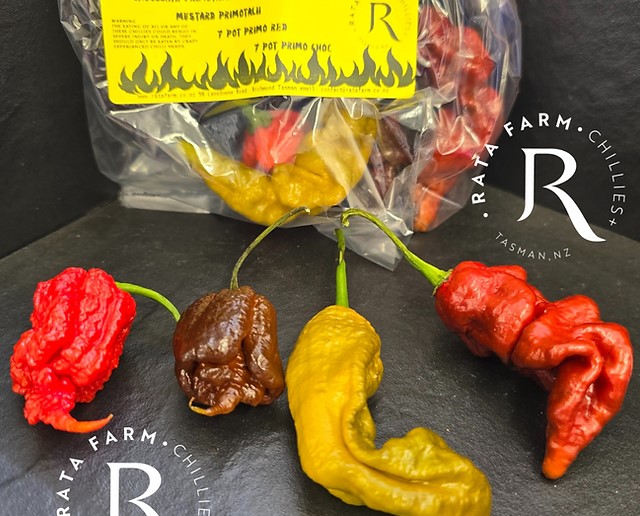
They are also developing their own varies by cross breeding existing varieties. “We are aiming to get great flavour as well as balanced heat levels. Some of our current chillis are just too hot to sell to the general market, they only go to selected customers. We also sell our main crop of Cayenne chillies to Turners & Growers for general distribution but only a few supermarkets stock the super hots (over 1m Scovilles). We do sell direct to local customers and the rest of New Zealand via our website, Facebook or Instagram if you need to feel the burn”.
As well as wanting to help develop the New Zealand chilli industry by cultivating seeds and new varieties Troy and Jo will eventually move into processing them into Rata Farms sauces, salts and chilli powders.
Troy says “we love our chillies and we are sure you will too!”
Rata Farms has a farm shop that is open every day 7am – 7pm at 98 Lansdowne Road where you can buy fresh chillis and strawberries when they’re in season. Or buy them online at www.ratafarm.co.nz
Published in the Nelson Mail 28-02-2024

